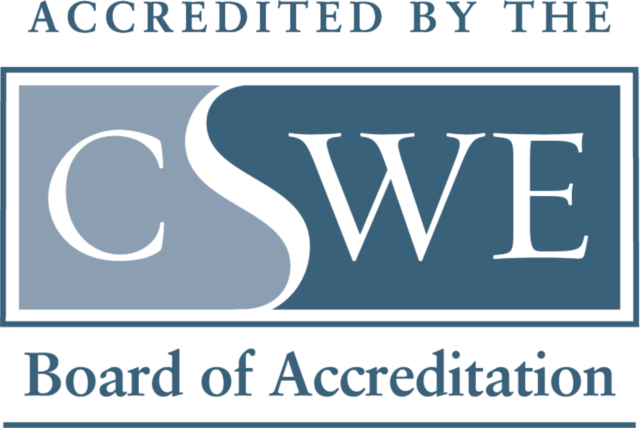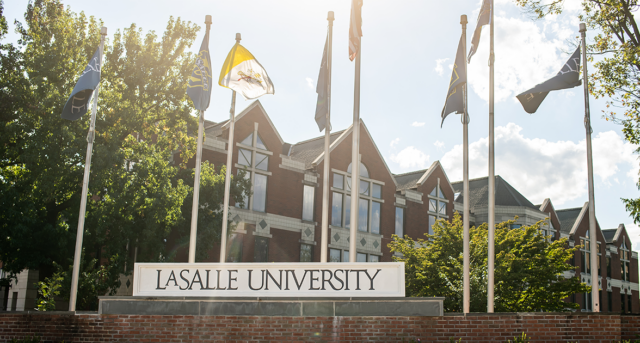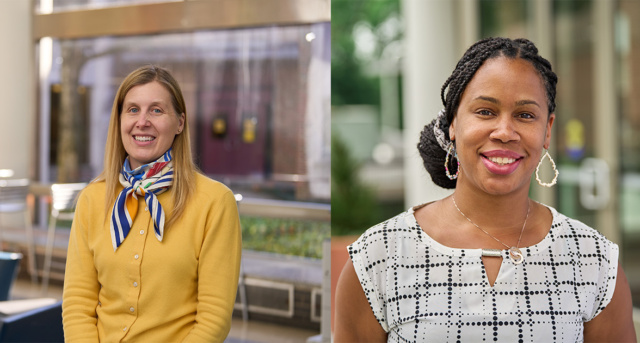La Salle University

Virtual Information Session
Learn more about the MSW program at La Salle and gain an early start on the application process.
What You’ll learn
La Salle’s MSW program builds on a person-in-environment perspective as it prepares students with the knowledge, values, and skills for advanced social work practice to ensure the well-being of individuals, families, and communities. Through the integration of theory and practice and a required field practicum, the MSW at La Salle will prepare practitioners who intentionally engage in reflective and reflexive practice, and act as change agents who reflect critically and contribute to the common good.
Why Study Social Work (MSW) at La Salle?
There is a large and growing need for Social Workers in a wide variety of settings including schools, hospitals, child welfare and human service agencies, mental health clinics, and community development organizations. Rooted in the Lasallian tradition of care and concern for others, our MSW program will prepare you to have a direct impact on individuals, families, communities, and society.
Highlighted Courses
SWK 585 – Mental Health & Substance Use: Support & Recovery
This course will provide students with an understanding of co-occurring disorders, related concepts and theories, and the inter-relationship between mental health issues and substance use and abuse. Mental health issues and substance abuse will be examined using the DSM, with specific attention to key symptomology and increased risk. Screening and assessment tools and intervention strategies for co-occurring disorders will be explored. The use of self in a professional setting and cultural considerations will also be examined. Students will gain an understanding of the implications of current policy on individuals, families, communities, and agencies as it relates to mental health and substance use disorders.
SWK 641 – Social Work Leadership
Social workers are often employed by, and tasked with leading, complex nonprofit organizations and social service agencies that enhance the well-being of individuals, families, and communities. This course aims to provide students with the necessary skills to manage and lead in these complex environments. Students will identify their own theory of leadership and how leadership applies to organizational management and identify organizational structures and the processes for managing and developing programs within them. Students will also develop supervisory skills and learn to mentor employees. Ultimately, this course prepares students for the arduous, but necessary, task of transitioning from direct practice to a leadership role within the social work profession.
SWK 650 – Advanced Integrative Practice with Children & Families
This course will emphasize the application of advanced theory and practice principles for working with children and families in diverse practice settings. Coursework will provide students the opportunity to consider approaches of current and emerging models of service delivery across the spectrum of clinical intervention settings, as well as more system intervention. Models of child and family practice that promote the well-being of children and their families are considered throughout this course.
Meet the Faculty
Brendan Young, DSW LSW is an Assistant Professor in the Department of Social Work at La Salle University. As an alumnus of the program, Dr. Young has held several roles within the department, including previously chairing the Social Work Department Advisory Board where he assisted the department in preparing the Master of Social Work program. Dr. Young recently completed his Doctor of Social Work at Kutztown University, where his research focused on the role that social work education plays in preparing students to engage in the political process. In addition to his academic experience, Dr. Young has worked for nearly a decade as a practicing social worker in health care settings. Dr. Young has worked for hospice organizations, as well as in Medicaid Managed Care, assisting clients with medically complex care needs gain access to care. Additionally, Dr. Young is engaged in local politics, working on several local, state, and federal political campaigns and serves as an elected committeeperson in Philadelphia.

Career Opportunities
- The need for social workers is expected to grow by 19% through 2026 (U.S. Bureau of Labor Statistics)
- Social workers have one of the highest rates of job satisfaction in the nation
- Those with an MSW earn an estimated 15-20% more than colleagues with only a BSW (salary.com)
- La Salle’s MSW program offers robust field placements
- La Salle MSW graduates are highly sought after by employers in a wide variety of settings, including government agencies, schools, and both nonprofit and for-profit organizations
Accreditation
La Salle University’s MSW program is accredited by the Council on Social Work Education’s (CSWE) Board of Accreditation (BOA). Accreditation of a baccalaureate or master’s social work program by the BOA indicates that it meets or exceeds standards of program quality evaluated through a peer review accreditation process. An accredited program has sufficient resources to meet its mission and goals and the BOA has verified that it demonstrates compliance with all sections of the Educational Policy and Accreditation Standards (EPAS). Accreditation applies to all program options, which includes locations and delivery methods. Accreditation provides reasonable assurance about the quality of the program and the competence of students graduating from the program. Review our program’s accredited status in CSWE’s Directory of Accredited Programs. For more information about social work accreditation, contact CSWE’s Department of Social Work Accreditation.

Assessment Outcomes

La Salle University’s Department of Intercollegiate Athletics and Recreation is adding four varsity sports—women’s rugby, women’s acrobatics and tumbling, and women’s triathlon, and will reinstate baseball — for the 2025-26 school year, President Daniel J. Allen, Ph.D., and Vice President of Athletics & Recreation and Director of Athletics Ashwin Puri announced April 17.

Explorers from around the world came together to support La Salle University with gifts to enhance the student experience.

Candace Robertson-James, DrPH, MPH and Joanne Woods, M.A. ’14, earned recognition for their commitment to La Salle.